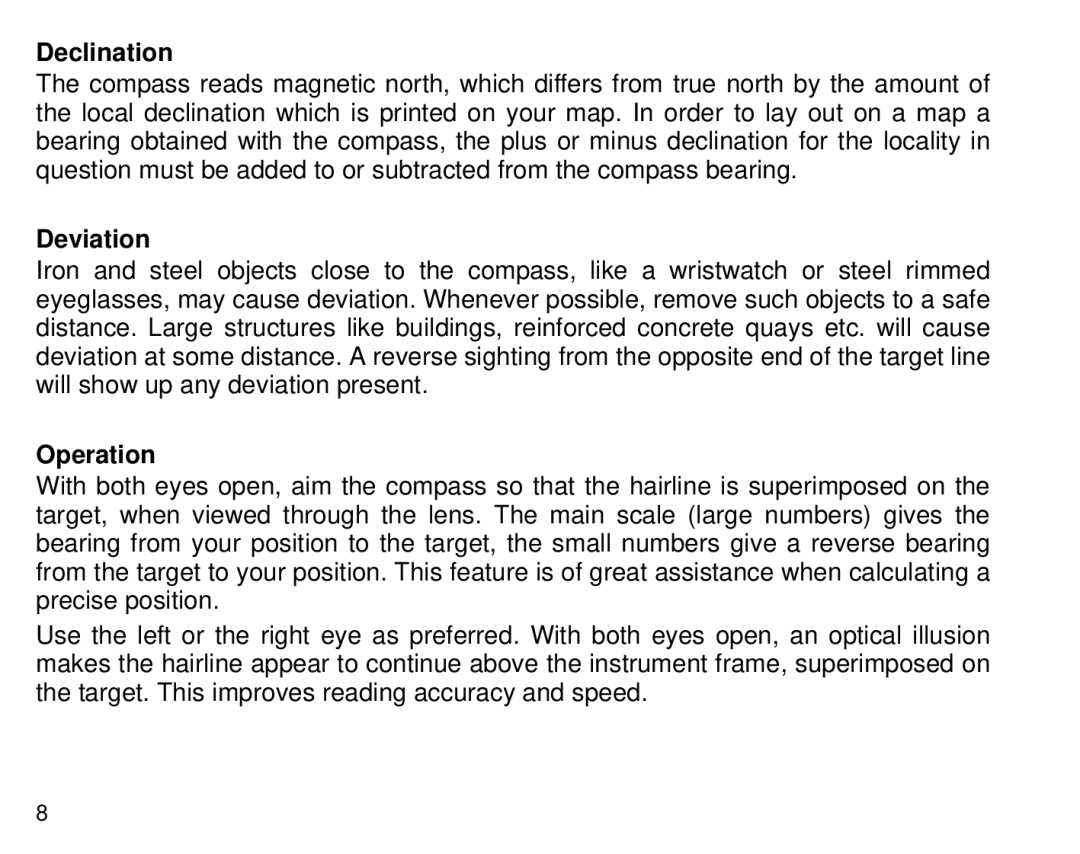Declination
The compass reads magnetic north, which differs from true north by the amount of the local declination which is printed on your map. In order to lay out on a map a bearing obtained with the compass, the plus or minus declination for the locality in question must be added to or subtracted from the compass bearing.
Deviation
Iron and steel objects close to the compass, like a wristwatch or steel rimmed eyeglasses, may cause deviation. Whenever possible, remove such objects to a safe distance. Large structures like buildings, reinforced concrete quays etc. will cause deviation at some distance. A reverse sighting from the opposite end of the target line will show up any deviation present.
Operation
With both eyes open, aim the compass so that the hairline is superimposed on the target, when viewed through the lens. The main scale (large numbers) gives the bearing from your position to the target, the small numbers give a reverse bearing from the target to your position. This feature is of great assistance when calculating a precise position.
Use the left or the right eye as preferred. With both eyes open, an optical illusion makes the hairline appear to continue above the instrument frame, superimposed on the target. This improves reading accuracy and speed.
8
